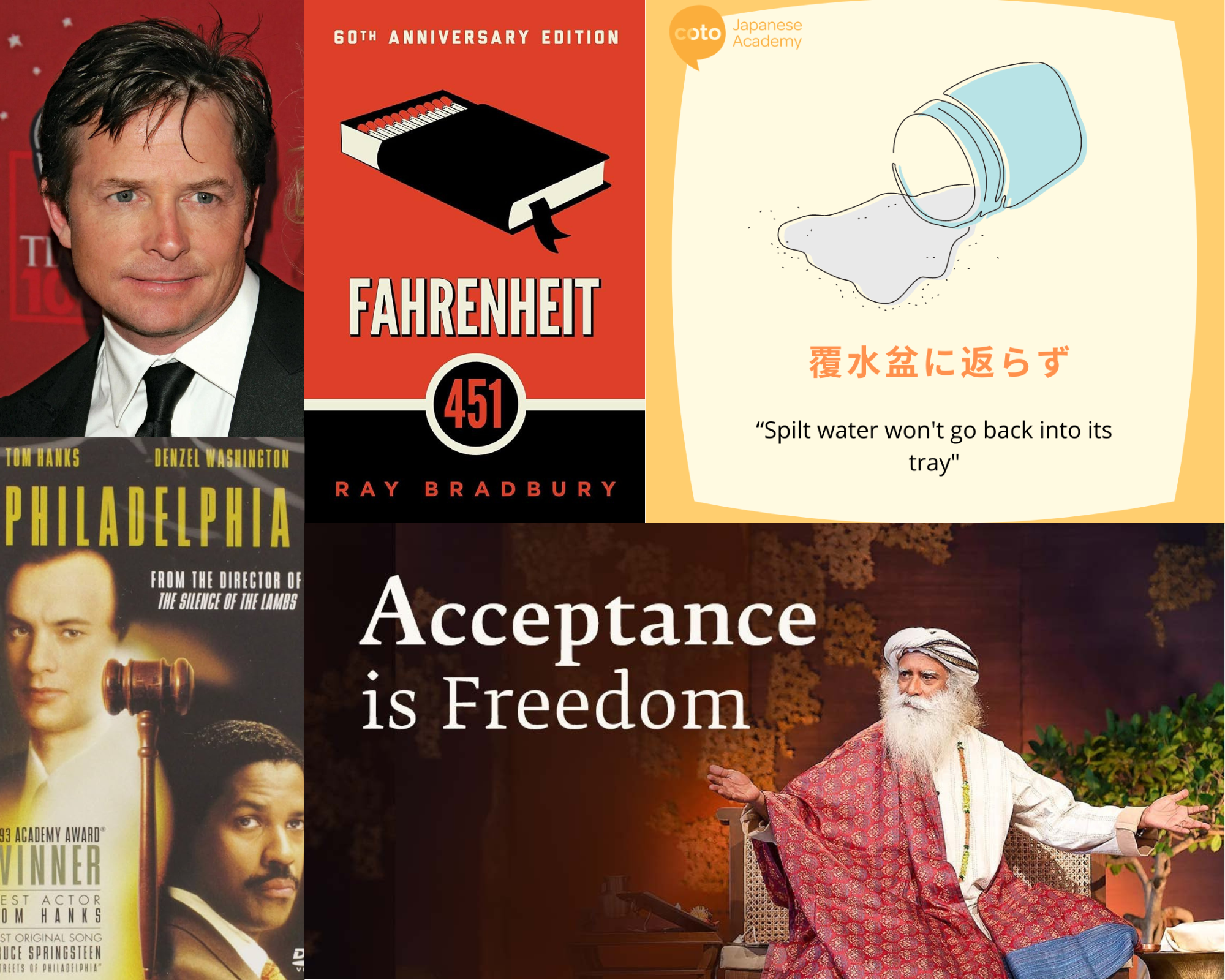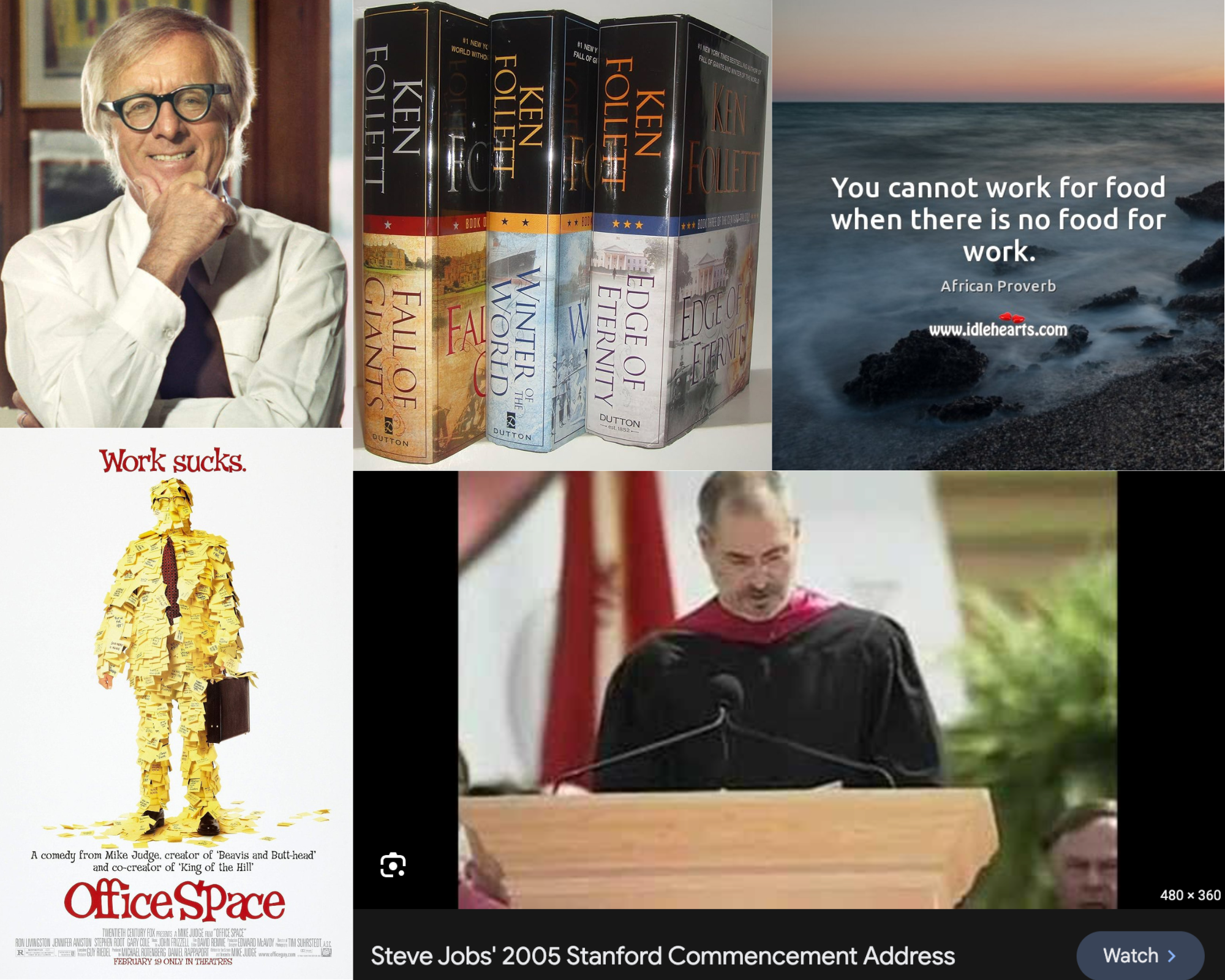Sunday Supplement #152 (April 7th, 2024)
Below is another Sunday Supplement with a quote worth sharing, a book worth reading, a movie worth watching, brainfood worth consuming, and a spiritual passage worth pondering.
Please take something away from these recommendations that enriches your week ahead!
Quote of the Week:
“Acceptance doesn’t mean resignation; it means understanding that something is what it is and that there’s got to be a way through it.”
– Michael J. Fox
Book of the Week:
Fahrenheit 451 – Ray Bradbury
My 6th-grade teacher gave me Fahrenheit 451 to read. It was one of those door-opening moments in the world of literature, and it’s one of the few books I’ve read more than once.
The dystopian novel follows fireman Guy Montag, whose job is to burn books that the government has outlawed.
Montag’s life changes when he meets a neighbor who reads books. He then embarks on his own journey of reading, which leads him to flee the city after he is caught.
Fahrenheit 451’s depiction of books filtered out because of people losing interest and the government’s controlling of narratives through media is one of many eery but poignant themes.
Ray Bradbury’s classic won a “Retro” Hugo Award in 2004 and should be on everyone’s classics-to-read list.
Movie of the Week:
1993’s Philadelphia follows Andrew Beckett as his law firm fires him because of his HIV condition and his subsequent wrongful dismissal lawsuit headed by a small-time homophobic lawyer, Joe Miller, as his only willing advocate.
Jonathan Demme (The Silence of the Lambs) brilliantly directs the Ron Nyswaner screenplay. Tom Hanks and Denzel Washington bring the story to life as Beckett and Miller.
I was only two years old when this movie came out, but watching it later gave me an interesting glimpse into the culture at the time.
Philadelphia won two Academy Awards, including Best Actor in a Leading Role for Tom Hanks, and was nominated for an additional three Oscars, including Best Writing.
Brainfood of the Week:
Why Acceptance is Freedom | Sadhguru
I’ve featured Sadhguru in several previous Sunday Supplements. He is an Indian yogi and bestselling author. His YouTube page has over 11 million followers.
In this video, Sadhguru discusses how our personalities can be like filters of likes and dislikes based on our preferences.
The danger of this comes from judging people and situations through our lenses of experience. You can carry many psychological wounds from slights you held onto for years.
Through total acceptance, you can remove the judgment from people and situations.
I find Sadhguru’s videos thought-provoking. They are worth watching and reflecting on. If you enjoy this one, check out my other posts.
Closing Spiritual Passage:
“Spilt water won’t go back into its tray.” (覆水盆に返らず)
– Japanese Proverb
This Japanese proverb has a Western cousin: “Don’t cry over spilled milk.” I think it’s pretty straightforward, but I like the Japanese Proverb’s translation.
I like the image of trying to force something like water or milk back into its container after it has been spilled.
I find myself guilty of trying to make things perfect or not acting until I think things are in the perfect conditions for action.
This proverb reminds me to think about what is the best usage of our time and energy. Once you’ve accepted something, you can decide how to move forward.
Accept the situation, move forward, and have a blessed week ahead!
Comments closed

